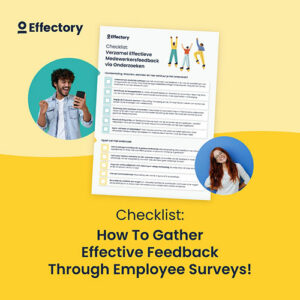Recent research carried out by two unions among a thousand University staff in the Netherlands shows that a company’s innovative capacity is heavily affected when employees don’t feel safe at work, to the extent that the whole organization can get stuck.
The importance of trust in your organization

In many organizations there is a culture of fear and intimidation. It is widely known that employees’ perception of their work will suffer, but less known that innovation and the overall effectiveness of the organization suffer as well. The focus of this study was specifically university employees, although recent newspaper articles in the Netherlands bring to the fore that the negative impact of the feeling of unsafety goes well beyond university institutions.
Intimidation and abuse of power
Although one would think that in academia people would be doing research in a relatively quiet and harmonious work environment, the survey released in May showed that four out of ten employees suffer from bullying, intimidation, abuse of power, withholding of information or (sexual) misconduct.
These are the main findings of the research by two Dutch workers unions (FNV and VAWO), conducted among over a thousand university employees. An alarming percentage of employees suffer from the situations listed above. The numbers are shocking, nearly all forms of misconduct are reported by over one-third of the respondents: intimidation and abuse of power 39%; gossiping 48%; withholding of information 46%; exclusion 37%; unequal treatment 29%.
Highly-qualified scientists leave on a massive scale
An overwhelming majority (73 percent) of the people surveyed indicated ‘poor leadership’ as the most important cause of a socially unsafe work environment. The researchers write that the impact of this unsafe environment does not only have far-reaching consequences on the personal level. Moreover, there is a significant impact on the professional performance of the employees:
“Victims and their colleagues are not able to do the work that they would have been able to deliver in a safer environment. Also, many highly-qualified scientists choose to leave.”
A report based on 53 cases of misconduct and intimidation found that there are four main causes in case of academia for a culture of fear. 1, The rigid hierarchical set up of the organization; 2, the very competitive and individualistic culture; 3, insufficient response to reports of misconduct by the employees; 4, the failure to report (if not forced by superiors).
How to gather feedback from your employees
The definitive checklist for creating your employee engagement survey.
DownloadTrust
The research summarized above teaches us how important the combination of trust and a feeling of social safety is in organizations. The productivity of employees can be reduced significantly when they do not feel safe at work. Effectory has analyzed data and feedback surveys collected at organizations over the past decade. A meta-analysis reveals that the opposite holds true as well. If an environment is created and maintained where employees experience a high level of trust, this will lead to a positive working atmosphere, less stress and lower staff turnover.
This substantiates that it is important to have access to information about the level of trust your employees experience – If it is not at the required level, the know-how on how to improve this is of essence for your organization to grow.
Trust scan
To create a good overview, Effectory identifies three places in the organization to measure the level of trust: the management level, the organizational level and between colleagues. In addition to the studies mentioned above, other scientific research supports that trust is based on three pillars:
1. Competence
Employees should be able to trust one another’s level of skill – John can be trusted, because he is good at what he does.
2. Intention
The intention of the work that is done is very important – John can be trusted, because he is a good person.
3. Integrity
Presumably the most important is integrity. It is only possible to trust your colleagues when you can be sure they are honest and act on strong moral principles – John can be trusted, because he delivers on his promises.
When conducting an in-depth trust scan, Effectory measures all pillars on the three levels of the organization.
Trust as a condition for success
Based on the results of the surveys, the unions in the Netherlands (FNV and VAWO) call for an independent complaints commission to be established together with an ombuds(wo)man for employees at universities. Intimidation and other misconduct should never be allowed. Moreover, victims and witnesses must feel and be safe when they need to report misconduct
However, this will not solve the root causes of the problems. You will also have to work on the above-mentioned aspects of trust in your organization. From analyzing data from employee surveys conducted by Effectory, we learned that employees’ drive is a logical result of a good and positive working atmosphere. Above all, the drive of the people in a company determines how successful it will be.
On a personal level, employees with a strong drive are mentally more resilient, have more energy, and are more effective and engaged, as well as more creative. In other words, the combination and interconnection between the factors described in this blog clearly show the importance of social safety and trust, not only for the wellbeing and happiness of your employees, but also to ensure your organization can deliver, prosper and renew itself in the long-term.
FRAME: Quotes from researchers about the working environment
- ‘My work was being plagiarized by a prominent professor. He told me to remain silent or I would be sacked’
- ‘I was excluded from co-authoring publications. Also I have been asked to add the names of others to my articles.’
- ‘Not only I was being asked straight forward if wanted children during my job interview, but also they will question out loud if you are able to do this job with a family.’
- ‘At my department the atmosphere is good, but we are in the eye of the storm.’
- ‘My superior yells at me and makes me feel small to doubt my capacities.’
Employee Engagement
Increase employee engagement through action-oriented feedback. Using a single platform, you can collect reliable data, analyze the results, and share insights.
view employee survey solution